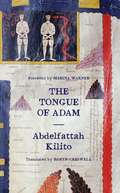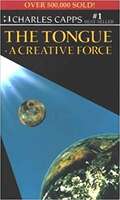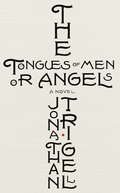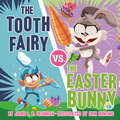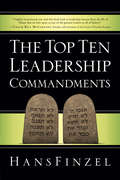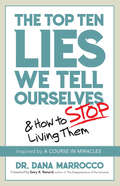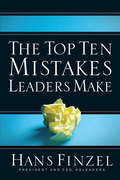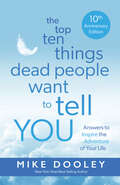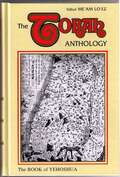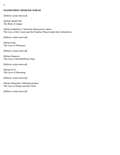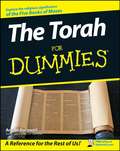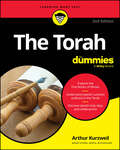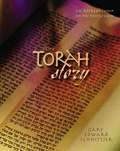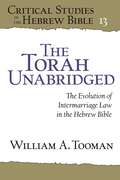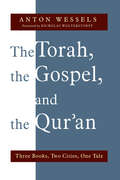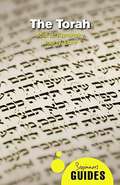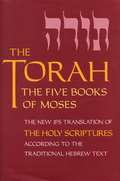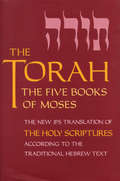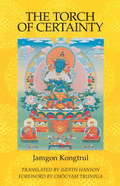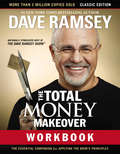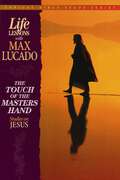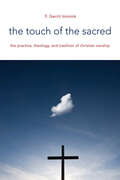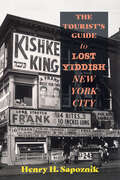- Table View
- List View
The Tongue of Adam
by Marina Warner Robyn Creswell Abdelfattah KilitoA playful and erudite look at the origins of language In the beginning there was one language--one tongue that Adam used to compose the first poem, an elegy for Abel. "These days, no one bothers to ask about the tongue of Adam. It is a naive question, vaguely embarrassing and irksome, like questions posed by children, which one can only answer rather stupidly." So begins Abdelfattah Kilito's The Tongue of Adam, a delightful series of lectures. With a Borgesian flair for riddles, stories, and subtle scholarly distinctions, Kilito presents an assortment of discussions related to Adam's tongue, including translation, comparative religion, and lexicography: for example, how, from Babel onward, can we explain the plurality of language? Or can Adam's poetry be judged aesthetically, the same as any other poem? Drawing from the commentators of the Koran to Walter Benjamin, from the esoteric speculations of Judaism to Herodotus, The Tongue of Adam is a nimble book about the mysterious rise of humankind's multilingualism.
The Tongue: A Creative Force
by Charles CappsWords are the most powerful things in the universe! The words you speak will either put you over in life or hold you in bondage. Many people have been held captive in their circumstances by their own words. The absence of God's Word in your life will rob you of faith in His ability. <p><p>Receive from God! Put yourself in a position to receive God's best for you by speaking His Word. God's creative power is still just as it was in the beginning of time when he stood there and said, "Light-be," and light was. <p><p>His Word spoken from your mouth and conceived in your heart become a spiritual force releasing His ability within you. Creative power in you! Man was created in the image of God and His likeness. Learn to speak His faith-filled words to your situation and see your life transformed. Allow God's creative power to flow from you. "I have told my people they can have what they say, but my people are saying what they have."
The Tongues of Men or Angels
by Jonathan TrigellAfter the crucifixion, Jesus's followers - now led by his brother, James the Just - remained devout Jews, vigorously opposed to the Roman occupiers. But a rival faction emerged, led by the charismatic itinerant Paul of Tarsus. Some called him Saint, some called him a liar, but Paul began telling the stories that would transform a small sect of Judaism into a world religion. In The Tongues of Men or Angels Jonathan Trigell shows the night sky of Biblical-era Galilee lit, not by guiding stars, but by flames of terror. He shows contested soil, on which miracles were performed and battles raged. He shows men of flesh and of blood, by turns loving and brutal. In so doing, he unseals a tale of the ages. The Tongues of Men or Angels is a dazzling act of imagination and learning, and a literary resurrection.
The Tongues of Men or Angels
by Jonathan TrigellAfter the crucifixion, Jesus's followers - now led by his brother, James the Just - remained devout Jews, vigorously opposed to the Roman occupiers. But a rival faction emerged, via the charismatic itinerant Paul of Tarsus. Some called him Saint, some called him a liar, but Paul began telling the stories that would transform a small sect of Judaism into a world religion.In The Tongues of Men or Angels Jonathan Trigell shows the night sky of Biblical-era Galilee lit, not by guiding stars, but by flames of terror. He shows contested soil, on which miracles were performed and battles raged. He shows men of flesh and of blood, by turns loving and brutal. In so doing, he unseals a tale of the ages. The Tongues of Men or Angels is a dazzling act of imagination and learning.
The Tooth Fairy vs. the Easter Bunny
by Jamie L.B. DeenihanThe Tooth Fairy and the Easter Bunny go head-to-head in this silly picture book perfect for anyone who's ever lost a tooth or found an Easter egg!After going head-to-head with Santa on Christmas Eve, Blue completed his mission to collect a child's lost tooth, earning him his Tooth Fairy Badge. Now that he's officially a Tooth Fairy, he's on his way to that child's house once again. But when he gets there this time, he runs into the Easter Bunny--who makes it clear that he works alone. Can Blue convince the rude rabbit to let him stay, or will he be forced to hop out in a hurry?
The Top Ten Leadership Commandments
by Hans FinzelBased on the life and legacy of Moses, Hans presents ten scriptural principles that can revolutionize your business, your ministry, even your life. The life of Moses provides a master study on what it means to be an effective leader. Consider his pedigree: Answered the call to do something beyond his means; stood his ground before kings; led millions of people on a journey across rivers and through deserts. Moses did this all with a dogged persistence that would not give up. You will discover a dynamic, effective tool for developing leadership skills, all built on the solid foundation of God's word.
The Top Ten Lies We Tell Ourselves: And How to Stop Living Them
by Dr Dana MarroccoIf laughter is the best medicine for physical illness, imagine what it might do for spiritual ailments. Educational psychologist and "self-help stand-up comedian" Dana Marrocco explores this idea in her first book, a work inspired by A Course in Miracles. Dr. Dana explains that the ego — the fear-soaked part of our mind — is happiest when we try to do everything it asks, even when it makes little sense. Following in the footsteps of Marianne Williamson, Gerald R. Jampolsky, M.D., and Gabrielle Bernstein, she uses both humor and a solid base of academic and practical knowledge to expose these hidden and harmful messages that, far too often, we blindly accept as true.Recommending a gentle, light hearted "roasting" of our self-deceptions, Dr. Dana tackles ten of the typical ego lies. Each of the ten lies comes with a twenty-four-hour challenge: to refrain from acting on or believing it for one day. With the rare, deft touch of someone who has actually tested her spiritual studies against everyday challenges, Dr. Dana offers a trustworthy, down-to-earth guide to recognizing the typical lies we all tell ourselves—and how to stop believing them."One of the keys to happiness is remembering to laugh, and Dr. Dana reminds us frequently of how to do that in The Top Ten Lies We Tell Ourselves. She's not just joking around, though, because she knows her stuff. She connects the most important principles of A Course in Miracles to her knowledge of psychology and then makes it clear that she's really used both in her own life. After this book, lying to myself won't be such a big deal anymore!" — Maria Felipe, author, Live Your Happy"Dr. Dana Marrocco's beautifully written guide through the ego's biggest lies is a heavenly compass for spiritual progress. Grounded in psychology and academic research, The Top Ten Lies We Tell Ourselves invites the reader to walk through an internal process of compassionate self-awareness to turn our fearful perceptions on their heads and return to a high-voltage perception of love. Dr. Dana's series of exercises takes us beyond the limitations of our conditioning and fear-based mental hooks to a brighter experience of life." — Lyna Rose, author, Enlighten Your Life"The Top Ten Lies We Tell Ourselves is a humorous look at the upside-down, fearful thought system of the ego part of our mind. By exposing our most common but not-so-obvious beliefs, this book will help you shift your mind to a right-side-up way of thinking, thereby freeing your mind from fear and setting you on a path of peace. The exercises throughout facilitate this awakening, and the twenty-four-hour challenges are brilliant!" — Corinne Zupko, EdS, author of From Anxiety to Love"Open this book, begin to read, and see if you can't find the truth, which will make you free. According to A Course in Miracles, we do not perceive our own best interests and need clarity to better understand what those interests are. This is an overall theme in Dr. Dana's conscientiously written book, reinforcing the practice of looking inward with total honesty to experience the happiness we deserve." — Jon Mundy, PhD, author, Living A Course in Miracles"Dr. Dana's voice speaks to me exactly where it helps most. She points to the hidden traps I have fallen into and how I can reverse my addictive beliefs that led me down the rabbit hole. The reader can easily identify with the 'ten lies' we grew up with, mistakes that weakens us, and will persist until we change our mind. I recommend this book to anyone who chooses to see things differently and stop living the mistakes of the past." — H. David Fishman, author, Into Oneness
The Top Ten Mistakes Leaders Make
by Hans FinzelAlthough leadership is the hot topic on conference agendas and book tours, most people who find themselves in positions of leadership have little or no training for the role. They simply continue to make the same old mistakes.With additional and newly updated material, this leadership classic reveals the most common errors that leaders consistently make-regardless of training or age-and the way to stop these bad habits from undermining their positive talents and accomplishments.Whether you are leading a company, a ministry, a Girl Scout troop, or your family, The Top Ten Mistakes Leaders Make is a must-read for anyone who wants to lead others effectively."If you're like me, you've grown weary of the published cookie-cutter approaches on how to lead effectively. And so has Hans Finzel. He drills to the core of the current issues on effective leadership."?-Charles R. Swindoll, author and president of Dallas Theological Seminary"This is one of the most practical books on leadership I have in my own library. If you are serious about becoming a better leader, you will want to read this book."?-John C. Maxwell, author, speaker, and founder of the INJOY Group
The Top Ten Things Dead People Want to Tell YOU: Answers to Inspire the Adventure of Your Life
by Mike DooleyA perennially popular book by a beloved author—now in an updated package with a new preface—sheds light on what the next life may have in store.&“A book about living that will help readers see more beauty, feel more power, and know more love.&”— don Miguel Ruiz, international best-selling author of The Four AgreementsIf the dead could speak, don&’t you wonder what they would say to those of us they&’ve left behind? What would they tell us to soothe our sorrow for their loss, calm our fears of what happens when we die, and fire us up to live the best possible lives we can right now?These are the questions New York Times best-selling author Mike Dooley seeks to answer in The Top Ten Things Dead People Want to Tell You—and ten years after its initial release, it&’s still one of Mike&’s most popular and beloved books. In pages filled with wisdom, humor, and, yes, joy, Mike explores our most pressing and profound questions about the afterlife—and this life—by adopting the perspective of those who have made the transition to the next phase. Among the revelations and insights they share:• We were ready; you are not.• There&’s no such thing as a devil or hell.• We&’re sorry for any pain we may have caused.• Your pets are just as crazy, brilliant, and loving here as they were there.• Nothing we say can prepare you for the beauty of the moment you arrive.New readers are discovering The Top Ten Things Dead People Want to Tell You all the time—and this anniversary release gives the book a fresh new package and new preface from the author to frame its invaluable insights for the times we live in now. &“Mike Dooley lifts the veil between our perceptual world and the world beyond our physical sight. [He] reminds us that we&’re always being guided. . . . Read this book and reconnect with the love that is all around you.&”— Gabrielle Bernstein, #1 New York Times best-selling author
The Torah Anthology, Book Of Joshua (Torah Anthology - Meam Loez Ser.)
by Shmuel Yerushalmi Nathan BushwichTorah Anthology, Book of Joshua (Yehoshua): (Me'am Lo'ez Series): 21
The Torah Anthology: Book Of Judges Shoftim (Torah Anthology - Meam Loez Ser.)
by Shmuel Yerushalmi Nathan BushwickThe Torah Anthology - Shoftim (Yalkut Me'am Lo'ez). by Rabbi Shmuel Yerushalmi, translated by Dr. Nathan Bushwick. Publisher: Moznaim Publishing Corporation . Dimensions: 6'' x 9''. Format: Hardcover. P
The Torah For Dummies
by Arthur KurzweilAn easy-to-understand introduction to Judaism's most sacred textThe foundation of Hebrew and Jewish religion, thought, law, and society is the Torah-the parchment scroll containing the text of the Five Books of Moses that is located in every synagogue. This accessible guide explains the Torah in clear language, even to those who were not raised in the Jewish religious tradition. Christians who want to know more about the Jewish roots of Christianity need to understand the Torah, as do followers of Islamic tradition and those interested in the roots of Abrahamic faiths. The Torah For Dummies explains the history of the Torah, its structure and major principles, and how the Torah affects the daily lives of people who follow the Jewish way of life.
The Torah For Dummies
by Arthur KurzweilAn accessible and fascinating exploration of the Torah The Torah For Dummies, 2nd Edition is an easy-to-follow and insightful guide to the first five books of the Hebrew bible: Genesis, Exodus, Leviticus, Numbers, and Deuteronomy. This helpful resource walks you through the foundations of Jewish tradition, religion, and theology, explaining Judaism's rich and ancient history and how its interpreted by modern Jews. You'll also find discussion on translations of ancient writings, as well as explorations of the resources that preserve and expand Jewish texts and archeological discoveries that shed additional light on old doctrines. Inside: Understand how the Torah is structured Discover how the Torah informs the lives of followers Explore interpretations, commentaries, and more. Perfect for practicing Jews who want to better understand their own faith, Christians wanting to know more about the Jewish roots of Christianity, followers of Islamic tradition, and those interested in the roots of Abrahamic faiths, The Torah For Dummies is a can't-miss resource for anyone interested in one of the world's oldest and most fascinating religions and cultures. It's packed with trustworthy information about the laws, teachings, and stories that guide the lives of people of faith all over the world.
The Torah Story: An Apprenticeship on the Pentateuch
by Gary E. SchnittjerWorking knowledge of the Torah is essential for every serious student of the Scriptures. Written in an engaging and accessible voice, even while digging into difficult and complicated matters at a sophisticated level, The Torah Story emphasizes the content of the text itself, moving beyond debating dates and theories of authorship into understanding how these five key books of the Bible help us understand the story of salvation. Providing flexible options for further study, each chapter includes the following: • Tips and tools for getting started • Questions that focus on key issues Key terms to look for • Outlines and summaries of the material • An interactive workshop designed for students, individuals, or study groups • Challenge questions drawn from the chapter and biblical text • Advanced questions for those who want deeper exploration of biblical contexts, language, and exegetical or theological issues • Research project suggestions • Discussion activities using films to engage the biblical narrative (selected chapters) A refreshingly new approach to the Torah—neither an introduction nor a commentary—The Torah Story provides a model of how to read Scripture intertextually. It leaves no doubt as to the overarching unity of the message and composition of the Pentateuch.
The Torah Unabridged: The Evolution of Intermarriage Law in the Hebrew Bible (Critical Studies in the Hebrew Bible)
by William A. ToomanThe Torah Unabridged is a detailed examination of legal reasoning in the Hebrew Bible. Focusing on the exegetical operations by which biblical laws related to intermarriage were applied to circumstances and persons that lie outside the sphere of their explicit content, this book reconstructs the ways in which laws regarding intermarriage evolved, were interpreted, and were applied across time and place.William A. Tooman argues that the “exegetical impulse” to expand upon the gaps left by laws relating to marriage in the Torah is expressed in several distinctive ways in later texts in the Hebrew Bible. Adopting a diachronic approach, Tooman examines the techniques biblical writers used in their appropriation, expansion, and manipulation of legal ideas within earlier biblical texts in order to apply the laws to more situations, circumstances, and people. Tooman’s analysis reveals that from Exodus to Ezra-Nehemiah, legal reasoning on intermarriage moved in a singular direction: toward an ever-greater restriction of marriage between Israelites/Jews and gentiles. The final chapter sums up the ways that this was accomplished, summarizing the logical and exegetical operations executed in the process of expanding the relevance of these laws, and describing the hermeneutical assumptions that motivated the process.Grounded in a detailed philological analysis of the Hebrew texts, this tightly argued monograph is an important impetus to further debate in the field. It will be welcomed by biblical scholars and by specialists in the history of law.
The Torah, the Gospel, and the Qur'an: Three Books, Two Cities, One Tale
by Nicholas Wolterstorff Anton WesselsDiscussing the Bible and the Qur'an in one breath will surprise some Jews, Christians, and Muslims. But Anton Wessels argues that all three traditions must read the Scriptures together and not against each other. As his book title suggests, the three books, in the end, are actually one tale.Wessels accepts Muhammad as a prophet and takes the Qur'an seriously as Holy Scripture along with the Old and New Testaments -- without giving up his own Christian convictions. Respectfully reading the Torah, the Gospel, and the Qur'an together, he argues, is of crucial importance: our world often sees these religious books as the cause of conflicts rather than the solution to them.
The Torah: A Beginner's Guide (Beginner's Guides)
by Joel N. Lohr Joel S KaminskyThere is no question that the Torah has had an enormous influence on Western Civilization. It is the source of widely known characters like Joseph, Moses, and Noah, and timeless stories such as the Garden of Eden and the Exodus. Jointly authored by professors of Judaism and Christianity, The Torah: A Beginner's Guide takes a unique approach, exploring the interplay and dynamics of how these two religions share this common scripture. Drawing on both scholarly and popular sources, Kaminsky and Lohr examine the key debates, while simultaneously illustrating the importance of the Torah in western jurisprudence, ethics, and contemporary conceptions of the family, morality, and even politics. Joel S. Kaminsky is Professor in the Department of Religion at Smith College where he teaches courses on the Hebrew Bible and on ancient Jewish religion and literature. Joel N. Lohr teaches in the areas of Bible and Old Testament at the department of religious studies at Trinity Western University, Canada.
The Torah: The Five Books of Moses (3rd edition)
by Jewish Publication SocietyThe new JPS translation of The Holy Scriptures according to the traditional Hebrew Masoretic text
The Torah: The Five Books of Moses, the New Translation of the Holy Scriptures According to the Traditional Hebrew Text
by Jewish Publication Society, Inc.Read our customer guideThe Torah is the essence of Jewish tradition; it inspires each successive generation. The current JPS translation, based on classical and modern sources, is acclaimed for its fidelity to the ancient Hebrew.
The Torch of Certainty
by Jamgon Kongtrul Chogyam TrungpaThis translation of a fundamental Tantric text reveals the richness and profundity of the intellectual and contemplative traditions of Tibetan Buddhism. The text describes the Four Foundation Practices that all practitioners of Vajrayana Buddhism must complete. The nature of impermanence, the effects of karma, the development of an enlightened attitude, and devotion to the guru are among the subjects treated in this book. Three eminent contemporary Tibetan Buddhist masters—Kalu Rinpoche, Deshung Rinpoche, and Chögyam Trungpa Rinpoche—explain the significance of The Torch of Certainty for modern-day students and practitioners of Tibetan Buddhism.
The Total Money Makeover Workbook: The Essential Companion for Applying the Book’s Principles
by Dave RamseyNationally syndicated radio host and money man Dave Ramsey offers a practical and inspiring action plan to help you get in the best financial shape of your life.A simple, straight-forward game plan for completely making over your money habits!Best-selling author and radio host Dave Ramsey is your personal coach in this informative and interactive companion to the highly successful New York Times bestseller The Total Money Makeover. With inspiring real-life stories and thought-provoking questionnaires, this workbook will help you achieve financial fitness as you daily work out those newly defined money muscles. Ramsey will motivate you to immediate action, so you can:Set up an emergency fund (believe me, you're going to need it)Pay off your home mortgage?it is possible.
The Touch of Tehillim: Stories and inspiration on the Psalms (Artscroll® Series)
by Rabbi Yechiel SperoTehillim touches us all - our lives, our hearts, our neshamos. We turn to Tehillim in times of joy and times of trouble; for comfort and guidance; to beg Hashem for help and thank Him for His blessings. King David's words have the uncanny power of touching all people, at all times, in all situations.
The Touch of the Masters Hand: Studies on Jesus (Topical Bible Study Series)
by Max LucadoChallenging topical Bible study based on Max Lucado's bestselling book Just Like Jesus. Topical Bible Study Series God loves you just the way you are, but he refuses to leave you that way. He wants you to be just like Jesus.Join Max in this challenging new topical Bible study based on his bestselling book, Just Like Jesus. Excellent for personal, small-group, or classroom settings. You, too can learn to be just like Jesus.
The Touch of the Sacred: The Practice, Theology, and Tradition of Christian Worship (Calvin Institute of Christian Worship (CICW))
by F. Gerrit ImminkAll over the world Christian communities meet on Sunday morning for worship. But what really happens during a worship service? How do worshipers participate in the service? What does it mean to sing, pray, and celebrate the Lord's Supper together? What do worshipers do when they listen to a sermon?In The Touch of the Sacred Gerrit Immink offers thoughtful theological reflection on the religious practice of worship services in the Protestant tradition. He develops a theology of worship with a clear focus on the death and resurrection of Jesus Christ as he explores the meaning of worship, the mystery of Christ, the sacraments, prayer, and preaching. Ultimately, he says, something dynamic happens when a church congregation speaks and acts: it is touched by the sacred, by a very encounter with the living God.
The Tourist's Guide to Lost Yiddish New York City (Excelsior Editions)
by Henry H. SapoznikA history of New York's Yiddish popular culture from 1880 to the present.The Tourist's Guide to Lost Yiddish New York City offers a new look at over a century of New York's history of Yiddish popular culture. Henry H. Sapoznik-a Peabody Award-winning coproducer of NPR's Yiddish Radio Project-tells the story in over a baker's dozen chapters on theater, music, architecture, crime, Blacks and Jews, restaurants, real estate, and journalism. Culled from over five thousand Yiddish and English newspaper articles of the period, and thanks to new research from previously inaccessible materials, the book reveals fresh insights into the impossible-to-overstate influence of Yiddish culture on New York City. Containing fifty images, many of which have never before been published, the book is complemented by an online interactive Google Map linked to over one hundred of the historic locations discussed in the book, with additional graphics and resource materials. The Tourist's Guide to Lost Yiddish New York City is a vivid, entertaining, and accessible compendium of both New York's lush Ashkenazic past and present, showcasing the culture's persistent resiliency.
